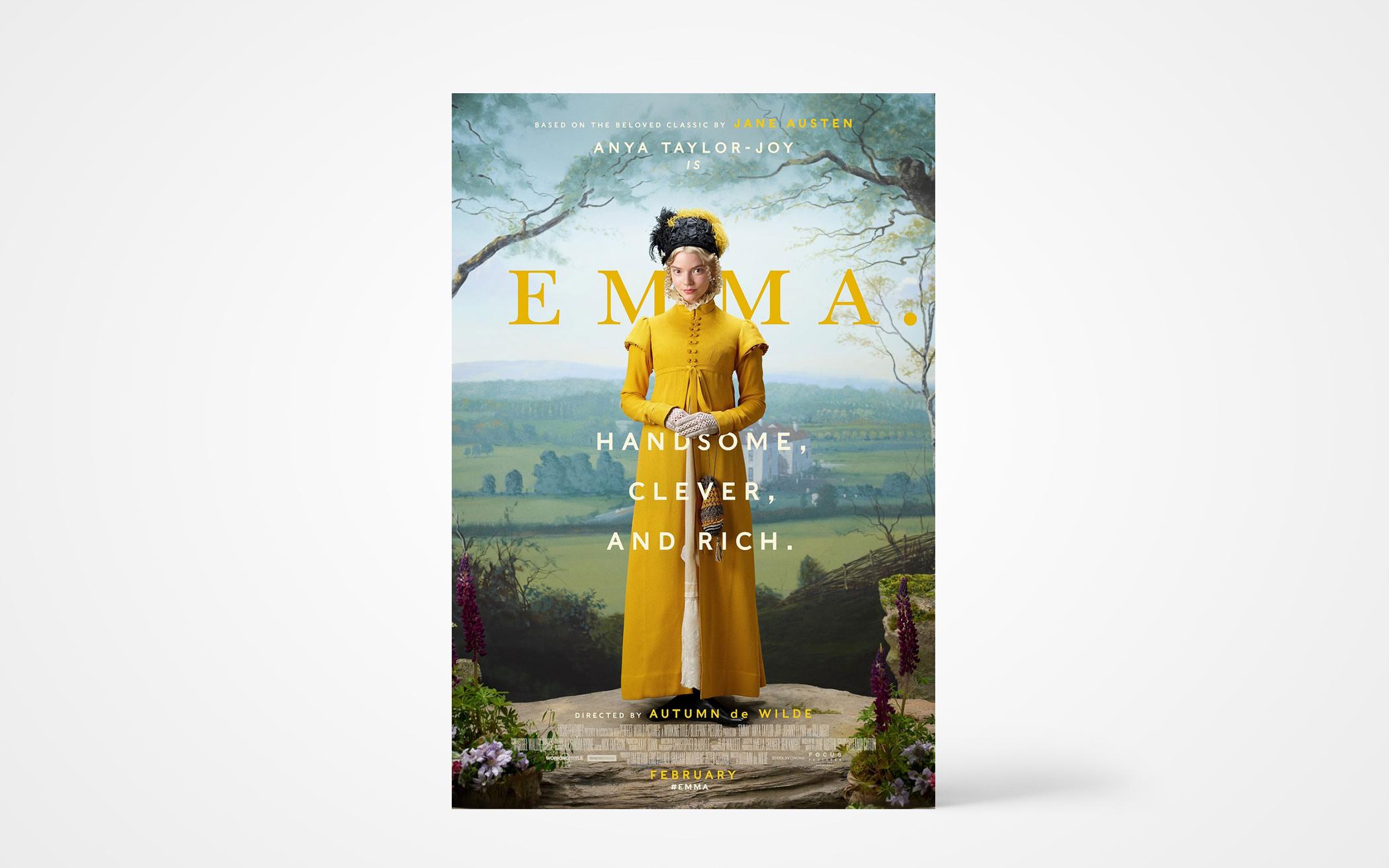I am reading Emma by Jane Austen right now for the first time and finding it to be delightful and funny with shrewd observations about matchmaking, father/daughter relationships, privilege, our shared humanity, and much more.
What is helping enormously with reading the 200-year-old text is that I first saw the new movie, Emma, while it was still in theaters. Sorry, Jane. Perhaps it is a testament to the flabbiness of my modern brain, but watching this fresh, vivacious, and seemingly Instagram—able version of Emma made my reading of the book come alive. (I do know one is supposed to do it the other way around and read the book first.)
The movie made these stuffy people in corsets and Regency hairstyles, speaking formally in British accents, human and approachable to me.
Anya Taylor-Joy, with her fascinating, wide-set eyes, stars as Emma Woodhouse, a pot-stirring socialite and matchmaker for everybody around her. She is the wealthiest of the literary heroines and lines up relationships for anyone and everyone, all the while bantering with her eventual suitor-to-be, Mr. Knightly (Johnny Flynn). She was written by Austen to be a bit unlikable. But I liked her, even if I didn’t like all her choices. She is self-centered to be sure. What else can you expect from a heroine about whom the first line of the book (and movie) are as follows? “Emma Woodhouse, handsome, clever, and rich, with a comfortable home and happy disposition, seemed to unite some of the best blessings of existence; and had lived nearly twenty-one years in the world with very little to distress or vex her.”
Yet Taylor-Joy evokes a young woman who has a decency and kindness at her core, but hasn’t grown up enough to live out of that core. Jane Austen was a devoted follower of Christ, and she often takes her characters on a redemptive journey. In Emma’s case, we see a shallow young woman who blurts out a casual cruelty to Miss Bates, a sometimes annoying though lovable spinster who holds very little power in Emma’s circle. In other words, Miss Bates is the least of these, socially speaking. (Played by Call the Midwife’s Miranda Hart, Miss Bates is just one of a sparkling array of supporting characters here. Joining Hart as priceless sidekicks are Josh O’ Connor as the grandiose and obsequious young vicar, Mr. Elton, and the scene-stealing Bill Nighy as Emma’s loopy, hypochondriac father, Mr. Woodhouse.)
But in the aftermath of Emma’s mean-girl moment, which prompts Mr. Knightly to utter the famous line, “Badly done, Emma,” our heroine is mortified in her conscience. She can’t live with herself until she has tried to make things right with Miss Bates. Taylor-Joy and Hart both make this scene poignant and affecting.
If Emma did not have a conscience or the character to make things right, she never would have been good enough for Mr. Knightly, who, like his name suggests, is a knight of a man, kind, honest, and fair. Flynn is the perfect Mr. Knightly, although that is an unpopular opinion among those who strongly favor other actors in other adaptations. That a real-life folk musician plays Knightly in a movie directed by first-time director Autumn DeWilde, famous for helming music videos, seems about right. (Flynn sings in the movie itself and in the credits, where he croons his original folk song “Queen Bee.”) This movie retelling of a centuries-old story feels strongly of the moment.
The chemistry between Taylor-Joy and Flynn is something to behold. Their desire is most evident in a passionate yet completely chaste scene where they participate in a reel dance at a ball. As per usual with a good Jane Austen adaptation, a brush of hands and a loaded look is enough to make one swoon. These simmering scenes make so many other cinematic portrayals of desire seem tawdry and empty.
Shot in glorious candy colors of pink, yellow, aqua, and mint green, this adaptation feels contemporary and fresh while hewing closely to the book. Purists have nothing to complain about in terms of going off book; Jane would be pleased. By the way, don’t be put off seeing the movie if you haven’t read the book first. I am living proof that you can watch the movie first and then read the book, and enjoy it all the more for having done so. (Focus Features, streaming from $19.99)
About the Author
Lorilee Craker, a native of Winnipeg, Man., lives in Grand Rapids, Mich. The author of 16 books, she is the Mixed Media editor of The Banner. Her latest book is called Eat Like a Heroine: Nourish and Flourish With Bookish Stars From Anne of Green Gables to Zora Neale Hurston.

